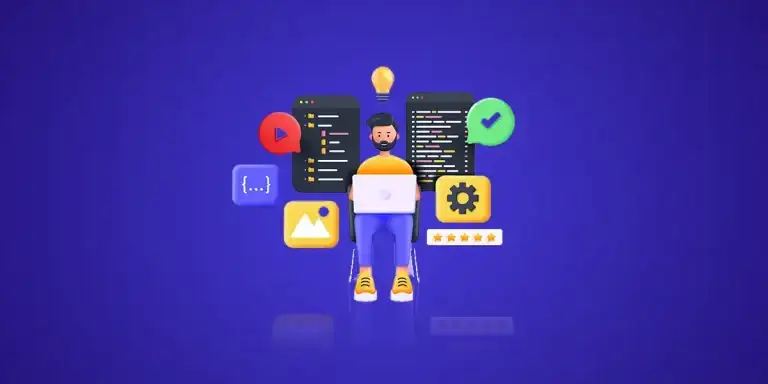
Searching for the “right one” often feels overwhelming in the sprawling world of software development languages—akin to looking for a proverbial needle in a haystack. We often confront this dilemma when pursuing coding excellence at Pegotec. The question beckons: Is there a definitive “best” programming language for software development? This comprehensive guide aims to spotlight this subject, dispelling myths and offering insights into how you can make an educated choice.
Pegotec’s Perspective on Language Diversity
At Pegotec, we understand the multifaceted nature of software development. A single language that caters to every project requirement, team structure, and technological landscape is, quite frankly, unrealistic. Different languages come with their merits and shortcomings. It’s akin to navigating through an abundant buffet of culinary options—each language has its unique zest and specialty that can be relished based on your project’s needs.
Compiled vs. Interpreted Languages: A Debate in Context
The controversy between compiled and interpreted languages is not new; it’s a debate that has existed for years within developer communities and Pegotec. Some developers at Pegotec advocate the efficiency and speed of compiled languages like C++ or Rust, especially for performance-intensive tasks. Conversely, some team members find the flexibility and user-friendliness of interpreted languages like Python or JavaScript more appealing. The ultimate decision often rests on the nature of the project and what we, as a team, find optimal.
Pegotec’s Hall of Fame: Java, Python, and JavaScript as Development Languages
Regarding languages that have stood the test of time and versatility, three names often appear in Pegotec’s discussions: Java, Python, and JavaScript. Java’s platform-independent nature makes it a go-to for developing robust, large-scale enterprise solutions. Python’s simplicity and comprehensive library ecosystem make it an ideal choice for anything from data analytics to artificial intelligence. JavaScript, often dubbed the ‘language of the web,’ is instrumental in creating dynamic and interactive front-end experiences.
Honorable Mentions in Pegotec’s Playbook for Development Languages
While Java, Python, and JavaScript hold pivotal roles, other languages also regularly appear in Pegotec projects. With its elegantly structured syntax, Ruby shines in the Ruby on Rails framework for fast-paced web development. Go, a Google brainchild, amalgamates the efficiency of compiled languages with simplicity, making it a robust choice for cloud-based solutions. Swift, emanating from Apple’s vibrant ecosystem, excels in creating a smooth experience for iOS and macOS applications.
Adaptability & Flexibility: Keys to Future-Ready Development
At Pegotec, we’ve realized that as technology evolves, so do the criteria for selecting a development language. Languages that can rapidly adapt to emerging trends and effortlessly scale are becoming indispensable. Keeping an eye on these qualities ensures we are current and future-ready.
Conclusion
The notion of an all-encompassing “best” language is essentially a myth, especially in a dynamic and ever-changing field like software development. What we prioritize at Pegotec is a language’s ability to meet the project’s needs, complement the expertise of our team, and offer the flexibility to adapt as the tech landscape shifts. The ideal language is not an absolute but a variable that aligns with specific requirements and goals. It’s about leveraging the right tools to bring your vision to life efficiently and effectively. Contact us today to discuss Navigating the Ocean of Development Language: Pegotec’s Guide to Finding Your Ideal Match and Pegotec’s Guide to Choosing the Right Development Language.
Frequently Asked Questions About Choosing a Software Development Language
No. The idea of one perfect language for all use cases is a myth. The best choice depends on your project’s goals, technical requirements, and your team’s expertise.
Compiled languages like C++ and Rust are translated into machine code before running, offering high performance. Interpreted languages like Python and JavaScript are executed line-by-line, providing flexibility and ease of development.
Java is great for large-scale, platform-independent enterprise solutions. Python is ideal for data analytics, AI, and fast prototyping. JavaScript powers dynamic, interactive web applications.
We also work with Ruby for rapid web development, Go for cloud-native solutions, and Swift for iOS and macOS applications.
Very important. A language that evolves with new technologies and scales easily ensures your application remains future-ready.
Yes. Pegotec assesses your project needs, timeline, and long-term goals to recommend the most suitable language or combination of languages.
Go combines the performance of compiled languages with simplicity, making it a strong choice for scalable, cloud-based systems.
Primarily, yes. Swift is designed for iOS and macOS applications, offering a seamless development experience in Apple’s ecosystem.
Let's Talk About Your Project
Enjoyed reading about Navigating the Ocean of Development Language? Book a free 30-minute call with our consultants to discuss your project. No obligation.